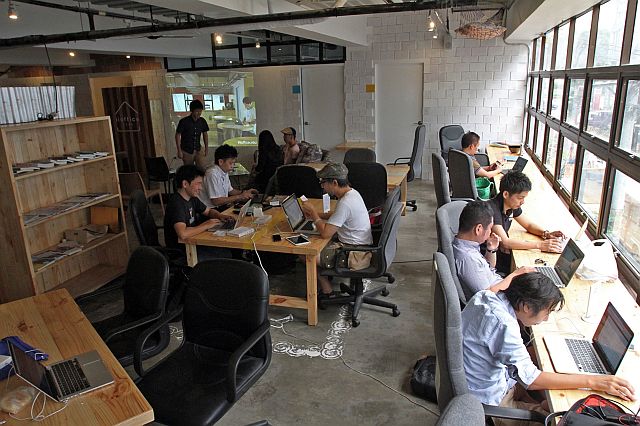Co-working spaces trend leads to ‘good’ office in Cebu

LIG Inc. employees work at the iioffice Cebu at Capitol Site. (CDN PHOTO/JUNJIE MENDOZA)
THE rise of startups, a greater number of millenials in the work force, and the trend toward self-employment have driven the opening of co-working spaces across the world, a Japanese web developer said.
Seito Horiguchi, president of Life is Good (LIG) Philippines, Inc., said the recently launched iioffice in Cebu City makes it a part of this trend.
“Co-working spaces are part of the ICT revolution which has transformed the way work and business are done,” Horiguchi, founder of iioffice, said during the media launch for the co-working space last Friday.
The “ii” in iioffice is Japanese for “good,” which is a nod to the mission of LIG, a media company that creates websites, does advertising, as well as owns restaurants and guesthouses in Japan.
LIG also has an iioffice in Japan and plans to put up another one there. The company has existed for over 10 years and presently has 100 employees.
Housed on the second floor of the Arlinda V. Paras Building along Don Gil Garcia Street, iioffice Cebu features a large kitchen, bar counters, refrigerators, conference rooms, focusing rooms, a printer, a phone, and coffee maker.
“(The) iioffice is a place where you can focus on your business and get things done while relaxing or having fun at the same time,” said Horiguchi.
A co-working space is a flexible space where entrepreneurs and startups can work together in a common and shared environment.
The Japanese-run space is the third co-working environment in Cebu City, next to The Tide and A Space, that isn’t owned by the government.
It is the fourth co-working space established here overall since the Department of Trade and Industry (DTI) launched one at the University of the Philippines Cebu along with a Negosyo Center in June this year.
Horiguchi said what they offer is not just a place to work, but a sense of community.
Disclaimer: The comments uploaded on this site do not necessarily represent or reflect the views of management and owner of Cebudailynews. We reserve the right to exclude comments that we deem to be inconsistent with our editorial standards.
